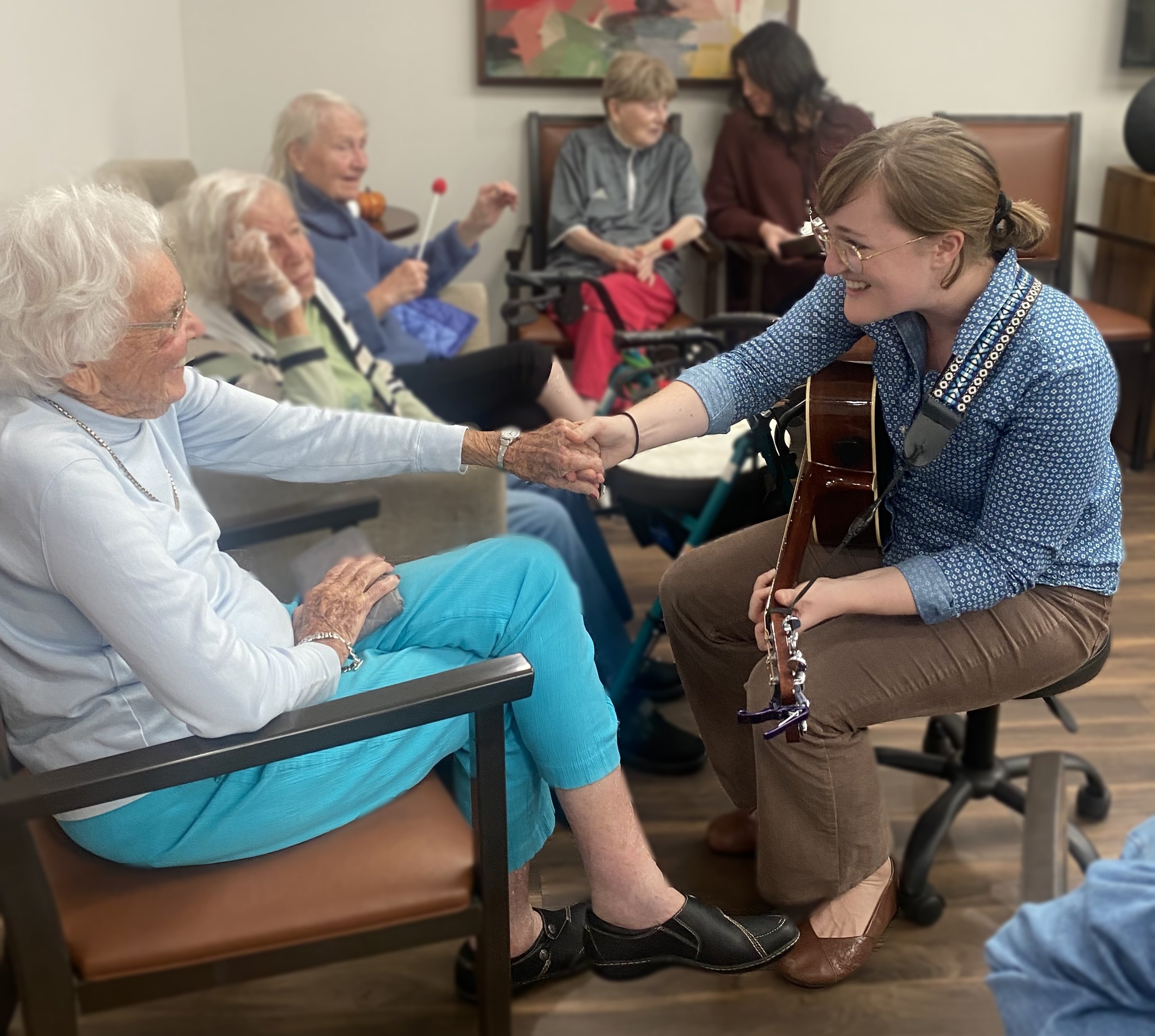
Group Music Therapy
Group music therapy offers many of the same benefits as individual music therapy, with some additional unique benefits.
In group music therapy, participants have more opportunities for:
socialization, building interpersonal skills, social cohesion, cooperation, bonding, practicing leadership and teamwork, turn taking, and cultivating feelings of belonging
Group music therapy takes place in large and small groups, both in our studio, and in community spaces.
-

Senior Living and Memory Care
Our music therapists understand that folks living in a senior care facility are dealing with a lot of changes, emotionally, cognitively, socially, and physically. We hope that seniors leave music therapy feeling seen and cared for and with improved overall wellness and mood.
Music therapist use their understanding of music’s effect on, and storage in, the brain to provide familiar, positive, comforting, and engaging experiences that address goals such as:
• Increasing meaningful engagement and activity levels
• Decreasing agitation, anxiety and depression symptoms
• Providing cognitive stimulation
• Increasing opportunities for autonomy and self-efficacy
• Strengthening community relationships
• Enhancing feelings of being supported, respected, and cared for
-

Social-Emotional Music Therapy
Social-Emotional Music Therapy groups are designed with neurodivergence in mind, and focus on skills for understanding each other and having positive interpersonal relationships.
Folks in social-emotional music therapy will benefit from the use of motivating musical interventions and songs that assist practice with:
• verbal and/or non-verbal communication
• interpersonal interaction
• coping with different personalities and needs
• emotional processing
• attention and listening skills
• taking turns
• personal space
• awareness of self and others
• sense of community and belonging
-

Music Therapy in Adult Day
Music Therapy in Adult Day programs often focus on emotional, cognitive, and social wellness. These groups often include physical engagement in music making through movement, playing instruments, and singing. Common goals:
• community and relationship building
• opportunities for emotional and creative expression
• coping and co-regulation with others
• elevating mood and decreasing anxiety
• developmental or cognitive stimulation
• teamwork and leadership skills
• increasing feelings of self-esteem and self-efficacy
• executive functioning skills
-

Music Therapy Supported Rehabilation Therapy
Music Therapy in rehabilitation focuses on supporting other therapeutic goals using the unique ways music impacts the brain and perception. Ways we can assist therapists include:
• Increasing alertness and cognitive engagement
• Stimulating speech
• Priming the motor cortex for movement
• Decreasing perception of pain and perception of exertion
• Improving endurance and motivation
• Cognitive stimulation through sequencing and structured activities
Ways to get involved in group music therapy:
Fill out an interest form or contact us to learn more.
Register for one of our in-studio groups on our registration page.
Contact us to get group music therapy into your community.

